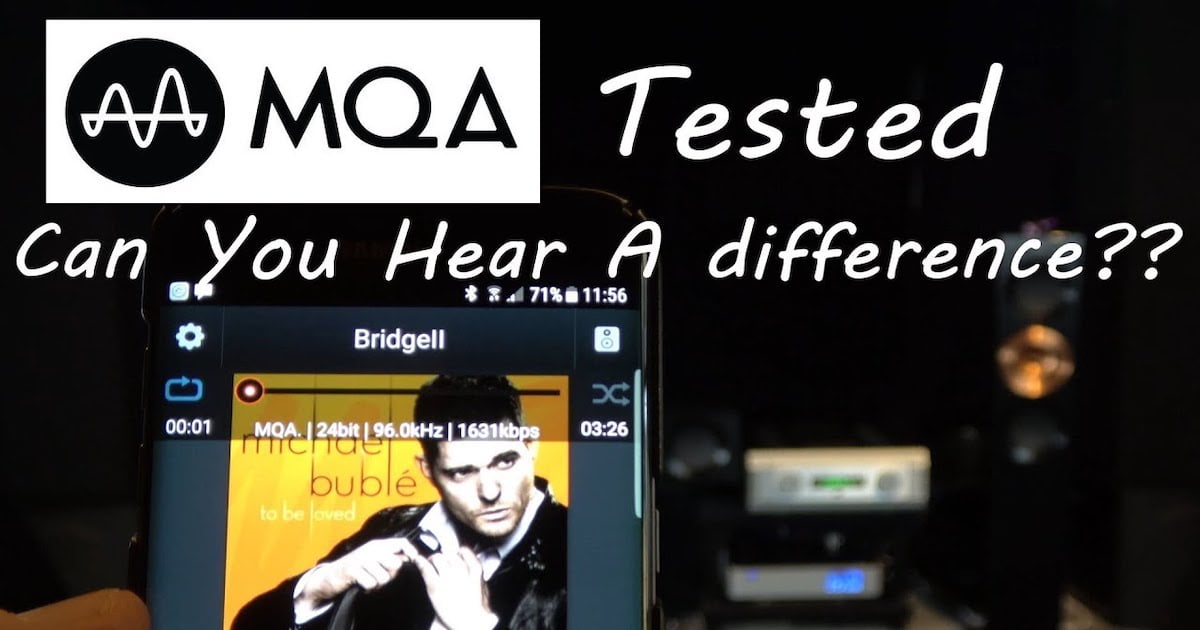It’s the time of year for saving money!
Back nearly two decades ago, well before I sold XLO, the high-end cable company that I founded and designed for, I wrote a sales manual for XLO dealers and their staff that, among other things, advised salespeople not to make A-B comparisons.
 Now, before all you unbelievers out there get excited, start doing your “I told you so” dance, and feel finally vindicated in your claims that cables are expensive voodoo that do nothing, there’s something you need to understand: I didn’t just advise them not do A-B comparisons of cables; I advised them not to do A-B comparisons of anything at all.
Now, before all you unbelievers out there get excited, start doing your “I told you so” dance, and feel finally vindicated in your claims that cables are expensive voodoo that do nothing, there’s something you need to understand: I didn’t just advise them not do A-B comparisons of cables; I advised them not to do A-B comparisons of anything at all.
Cables, like all other good-quality equipment from reputable manufacturers, do work, and they do clearly and obviously affect the sound of a system. The only conceivable exceptions would be cables that are truly perfect: Those would all pass the signals they carry absolutely unchanged, with nothing added, nothing subtracted, and nothing either distorted, phase-shifted, or altered in frequency balance or in any other way. All such cables, because they are perfect, would obviously sound exactly the same and, as Julian Hirsch contended for “perfect” electronics, wouldn’t affect the sound of a system at all. To my knowledge, though, no such perfect cables yet exist or are ever likely to, and all real-world cables do sound different and do, across the performance spectrum, sound different enough that, if customers would actually give them a fair listen, they would discover that they could tell them apart and judge them.
That “fair listen” was the reason that I advised hi-fi salespeople against A-B comparisons. The flaws of A-B comparisions remain a problem — not with the cables or with any other equipment or tweak, but with the customers, themselves.
A great many hi-fi customers, and even many dyed-in-the-wool audiophiles, don’t think of hi-fi salesmen as just ordinary people trying to make a living, or even as music-lovers or hi-fi enthusiasts just like themselves. Instead, they assume that hi-fi salespeople are genuine experts, whether because of special training, “golden ears” or just greater knowledge gained from greater exposure. It’s this assumption that, whether correct or not, can create a problem:
When faced with an A-B (“Which of these two speakers, cables, or whatever sounds better?”) comparison, many customers assume:
1) That there is some absolute standard for judgment, and that one of the products being compared really is better in some absolute way.
2) That the salesperson, being an expert, knows which one it is.
3) That they (the customers) not being experts, won’t know.
4) By guessing the “wrong” one, they’ll expose their ignorance, their inadequate hearing or their bad judgment, and will end up making fools of themselves.
In short, regardless of the facts, the friendly assurances of the salesperson, and the simple truth that the best way for someone to tell which of two products he likes better is to listen to both of them and compare them, all too many customers are afraid that the test is not really of the equipment but of themselves. That prospect makes them uncomfortable, so they either grab a piece of product literature, make some lame excuse, and beat a hasty retreat out the door, or they listen to the test with just half an ear, giving more of their attention to watching the salesperson to see his reaction to the products being tested so they can know which is the “right” one to guess. The one thing they don’t do is to give the products that “fair listen.”
The reality of the A-B test situation is much more complex than it might at first seem, but it isn’t a test of the customer. Yes, certainly the salesperson is likely to know more about the products he sells than the customer does, but he’s supposed to; it’s his job, and the store would be doing its customers a disservice if he didn’t. It’s also true, and customers should understand, that all of the products in the store have been tested and compared to the best of their kind, class and price range, and found to have some point of advantage over all the others; otherwise the store wouldn’t have decided to carry them. Retail is a highly competitive business and no store will willingly carry products it thinks its customers won’t want to buy. Thus, there will be no bad products offered for the customer to choose from, and the customer can’t make a bad choice (or one that he would have to feel embarrassed about), because the store’s owner has already chosen every product in the store to be a winner.
On the other hand, there’s probably no absolutely right choice, either. Regardless of the technology necessary to bring it to you, hi-fi is highly subjective and personal. It is, after all, something that we buy for our own personal enjoyment. Each of us has different tastes and preferences, so what’s right for one person may be not at all the same as what’s right for another.
So here, finally, is my advice.
To salespeople, I say: Don’t just do a demonstration, make a recommendation. Let the customer know which product you prefer, and why. Let him also know that it’s OK to disagree with you. He’ll thank you and buy more of what you’re selling.
And to customers, I say: Don’t worry about the salesperson knowing more than you do; that’s part of the service. Instead, take advantage of his knowledge and experience by using him as a guide to help you select a range of products that might be suitable to meet your needs, and then demand your right to hear every one of them in an A-B comparison, always on the kind of music you like, and preferably on recordings that you are familiar with. Bring your own recordings, if you can, so that you’re listening only to new equipment and not to both new equipment and new music. Finally, do consider the salesperson’s input on the reliability, features, and relative value of what you listen to, but never buy anything based on his preference over your own: He’s going to be pleased with the sale either way, but you have to pay for it and you have to live with it, once bought.
Do listen, do compare!
Happy hi-fi!





